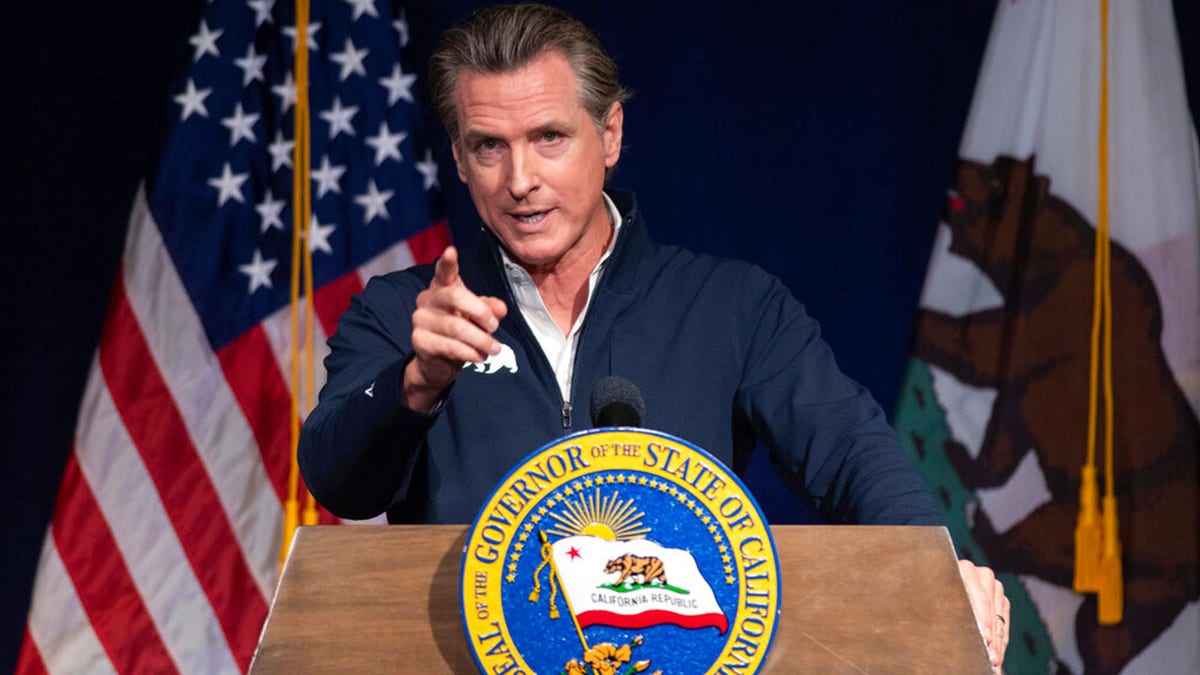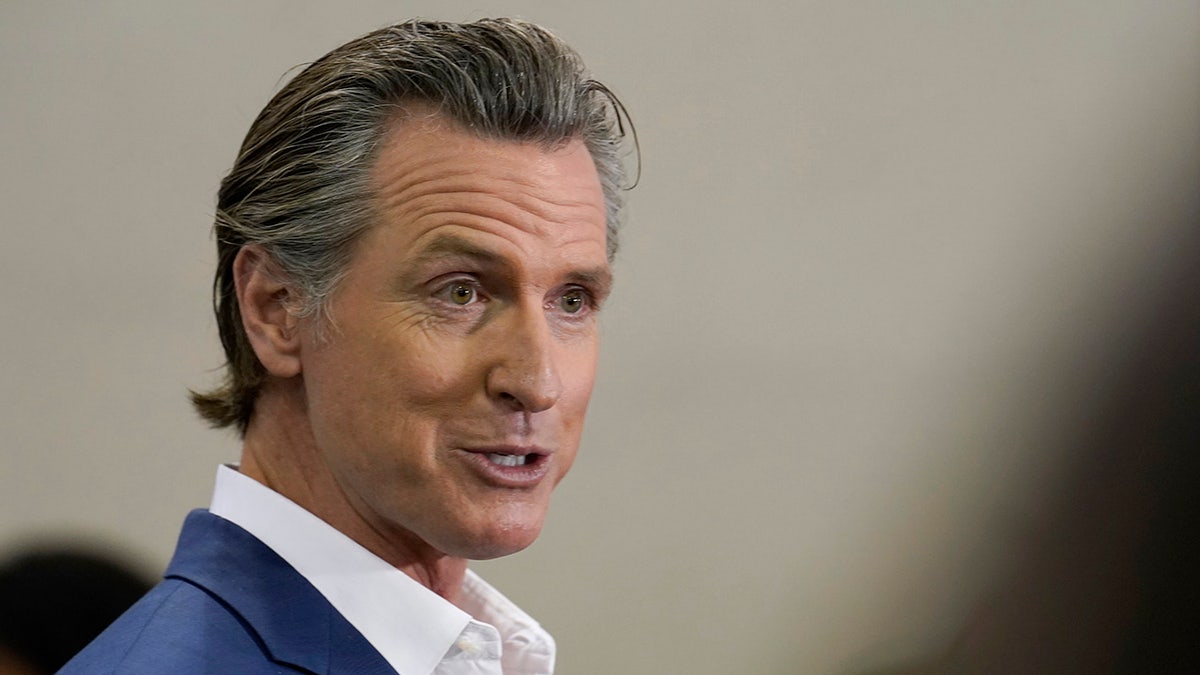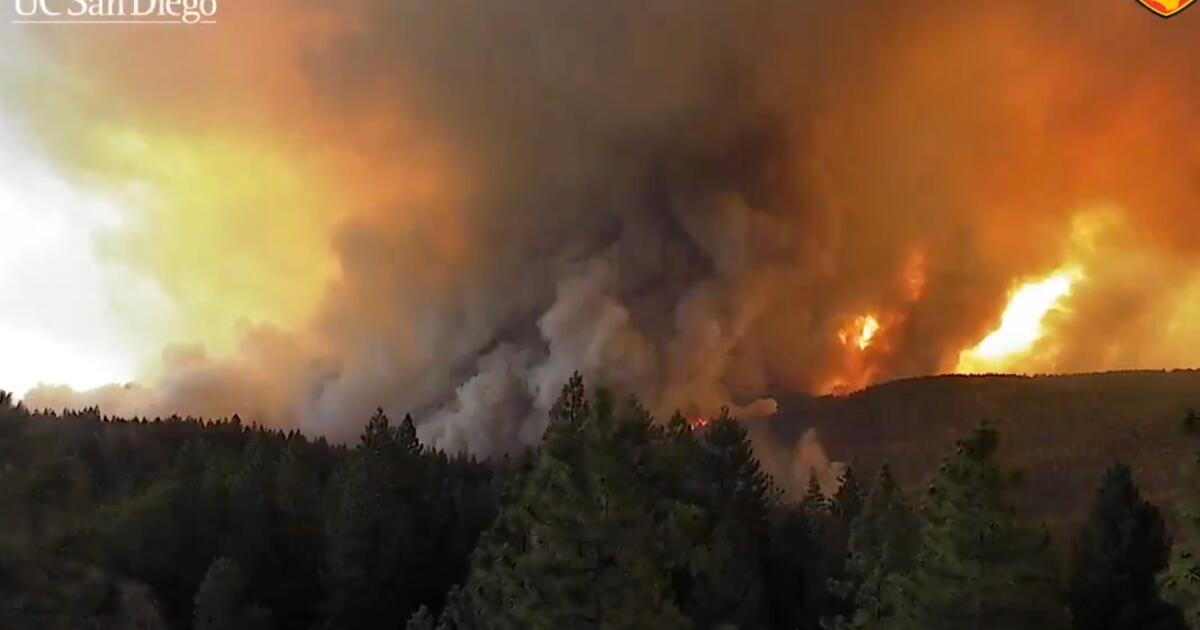World News
West Virginia Gov. Justice breaks with GOP Legislature to veto bill rolling back school vaccine rule

CHARLESTON, W.Va. (AP) — Republican Gov. Jim Justice on Wednesday broke with West Virginia’s GOP-majority Legislature to veto a bill that would have loosened one of the country’s strictest school vaccination policies.
West Virginia is only one of a handful of states in the U.S. that offers only medical exemptions to vaccine requirements. The bill would have allowed some students who don’t attend traditional public institutions or participate in group extracurriculars like sports to be exempt from vaccinations typically required for children starting day care or school.
“Our kids are our future,” Justice said in a letter explaining the veto. “They are our most important resource, and I will protect them with everything I have.”
The governor said “West Virginia is way ahead of the pack” in protecting children from preventable diseases like measles because of its school vaccine policy. He said he had to defer to the licensed medical professionals who “overwhelmingly” spoke out in opposition to the legislation.
“I hear how strongly people believe in one side or the other on this subject, and I respect all opinions,” he said. “But I must follow the guidance of our medical experts on this subject.”
Justice, who is running for Democrat U.S. Sen. Joe Manchin’s seat, received immense pressure to reject the bill from health care leaders, educators and parents. He refused to answer whether or not he planned to sign it before Wednesday’s veto, saying he needed time to think through the decision.
The veto came on the last day before a key deadline that would have allowed the bill to go into law without Justice’s signature.
The bill, which received majority support in both legislative chambers even with an overwhelming lack of support from health care leaders, would have exempted private and parochial schools from state law and allowed them to develop and enforce their own policies on vaccinations. Virtual-only public school students would also have been exempt.
All students participating in West Virginia school activities that result in competition, including but not limited to sports, would still have needed to be vaccinated.
The bill was publicly opposed by the head of the state’s two teachers unions, the West Virginia Hospital Association and the West Virginia Medical Association, among other organizations.
Dr. Clay Marsh, West Virginia University’s vice president and executive dean for health sciences, also urged Justice to vote against the bill. As COVID-19 Czar for the State of West Virginia, Marsh was tapped as a trusted advisor when it came to preventing spread of the virus in the state.
Justice was hailed by state health care leaders for his pro-vaccine stance during the coronavirus pandemic. When the COVID-19 vaccine was developed, Justice was among the first top elected officials in the country to receive a shot, even livestreaming the inoculation on social media.
Before Justice vetoed the bill, Kanawha-Charleston Health Officer Dr. Steven Eshenaur said he was deeply worried about the consequences that could come from the legislation being made law.
“Yes, personal freedom is vital to our way of life in West Virginia and America, and I am all for it,” he said in a statement. “But not when the lives of children are in danger.”
Eshenaur said state leaders owe it to children to keep them safe, healthy and free of disability if it’s in their power to do so.
“Hear this on repeat: If you are anti-vaccination, you are pro-disease. It’s as simple as that,” he said.
West Virginia law requires children to receive vaccines for chickenpox, hepatitis-b, measles, meningitis, mumps, diphtheria, polio, rubella, tetanus and whooping cough, unless they receive a medical exemption. West Virginia does not require COVID-19 vaccinations.
Health care leaders say other states have used West Virginia’s immunization requirements as a model to strengthen their immunization requirements after experiencing measles outbreaks. West Virginia, along with California, Connecticut, Maine and New York, are the only states without nonmedical vaccination requirements.
But a growing number of parents in the state have expressed frustration with the state’s policy and say they should have the freedom to make their own decisions about their children’s vaccination status.
West Virginia University School of Medicine Professor Dr. Alvin Moss was one of a handful of doctors supportive of the bill, arguing before the Senate Health Committee that the state’s current compulsory vaccination policy is medically unethical because it doesn’t allow informed consent.
In 2017, the anti-vaccine requirement group West Virginians for Health Freedom had 300 families as members. The organization has grown to at least 3,000 members in 2024, Moss said.
The bill’s original intent, as introduced in the state House of Delegates, was to eliminate vaccine requirements for students in public virtual schools. It was expanded in a House committee to allow private schools to set their own vaccination standards, unless a student participates in sanctioned athletics.
The bill also created a religious exemption for any child whose parents or guardians present a letter stating the child cannot be vaccinated for religious reasons. That was taken out in the Senate.
World News
Newsom urges Oakland officials to tighten ‘extreme’ policy that restricts police chases

California Gov. Gavin Newsom, a Democrat, called on Oakland officials Friday to amend an “extreme” policy that generally only allows police to chase suspected criminals in cases of “violent forcible crimes.”
The governor sent a letter to Oakland Mayor Sheng Thao, the Oakland City Council and the Oakland Police Commission urging them to reconsider the Oakland Police Department (OPD) policy that limits officers’ ability to pursue suspects.
“Although some California jurisdictions allow vehicle pursuits for only certain crimes (e.g., felonies), Oakland is an outlier by imposing exceptional restrictions on OPD’s ability to police criminal activity, generally permitting pursuits only for ‘violent forcible crimes,’ as defined in OPD’s policy, and crimes involving firearms,” Newsom wrote.
The letter said that, unlike most other jurisdictions in the state, local police in Oakland are prohibited from pursuing people suspected of committing various felonies and any misdemeanor, including those that are violent, as well as other offenses that endanger public safety, such as reckless driving, sideshow activity and driving under the influence of drugs or alcohol.
GOV NEWSOM ORDERS HOMELESS ENCAMPMENTS TORN DOWN ACROSS CALIFORNIA: ‘NO MORE EXCUSES’

California Gov. Gavin Newsom speaks in Sacramento, California, Jan. 10, 2023. (AP Photo/José Luis Villegas, File)
“I am mindful of the sensitivities around vehicle pursuits, which can be dangerous to police, suspects, and innocent bystanders,” the governor wrote. “California’s Commission on Peace Officer Standards and Training recognizes and addresses this in its standard-setting guidance. But there is also extreme danger to the public in allowing criminals to act with impunity, and the reckless driving associated with sideshows and other criminal acts is a significant threat to public safety — as witnessed regularly by the public in viral videos and news coverage.”
This comes after Newsom’s recent move to increase California Highway Patrol (CHP) in Oakland to conduct surge operations targeting organized crime, sideshows, carjackings and other criminal activity.
Newsom said the move quickly produced several arrests of suspects accused of committing these crimes. Two days after the governor’s announcement, the CHP used ground and airborne assets to conduct a surge operation targeting sideshows. Several vehicle pursuits through that operation led to five felony arrests, eight DUIs, the recovery of eight stolen vehicles and the seizure of two guns.
“In the course of the CHP’s operations, however, they have observed, based on their professional law enforcement experience and expertise, certain dynamics that are contributing to Oakland’s public safety challenges,” Newsom wrote in the letter. “In particular, the CHP has brought to my attention that they observed criminals often fleeing with impunity because it’s common knowledge that the Oakland Police Department’s (‘OPD’) pursuit policy allows vehicle pursuits in only very limited circumstances.”
Newsom said CHP observed suspects attempting to avoid arrest by using the same routes, meaning that the suspects knew where OPD would stop chasing them. But, the governor said, the suspects were unable to avoid the six pursuits initiated by CHP, which had a number of resources available to them, including air support.

California Gov. Gavin Newsom speaks at a news conference in Sacramento, California, Thursday, March 16, 2023. (AP Photo/Rich Pedroncelli)
CLICK HERE TO GET THE FOX NEWS APP
“Any policy on vehicle pursuits must be clear-eyed in balancing the risks and benefits involved,” Newsom’s letter read. “Because of Oakland’s public safety challenges and the degree to which OPD’s pursuit policy is an outlier among California law enforcement agencies, I support the recent action by the City Council to direct a review of this policy.
“I urge you to reconsider whether OPD should be permitted to pursue suspects in more circumstances to improve public safety in your city and to establish a process to evaluate whether OPD is making full use of its authority, including that granted under the existing pursuit policy, to protect public safety and enforce the law,” he continued.
Newsom concluded his letter by saying he is committed to improving public safety in Oakland and across California. He said there have been some recent improvements in public safety, but that officials “owe it to our communities to continue to search for solutions.”
World News
France travel disruption expected to last for days

French rail company SNCF has warned that disruption from Friday’s sabotage against the country’s train network could last until the end of the weekend and affect hundreds of thousands more passengers.
Coordinated arson attacks on three lines of the high-speed TGV network on Friday caused chaos for travellers, hours before the opening ceremony for the Paris Olympics. A fourth attack was thwarted by rail workers.
Prime Minister Gabriel Attal described the attacks as “acts of sabotage”.
About a quarter of international Eurostar trains were also cancelled, with UK Prime Minister Keir Starmer among those affected.
In a statement issued on Friday evening, SNCF said traffic “would improve” on affected lines on Saturday thanks to the work of thousands of rail workers.
It said:
- On the eastern line, trains would run normally from 06:00 (05:00 BST) on Saturday
- On the northern line, 80% of trains would be running, with delays of 1-2 hours
- On the south-western line, 60% of trains would be running, with delays of 1-2 hours
The company added that customers whose trains are delayed or cancelled will be contacted by email or text message.
Eurostar said it expected about a fifth of services over the weekend would be cancelled, while all trains would face delays of around 1.5 hours. Eurostar services use the northern high-speed line.
SNCF said surveillance of the rail network had been strengthened “on land and in the air,” using 1,000 workers and 50 drones.
Junior Transport Minister Patrice Vergriete said around 250,000 people had been affected on Friday, while up to 800,000 could face delays and cancellations by Monday.
He added that disrupting holiday travel, rather than Friday’s Olympic opening ceremony, was the most likely aim of the saboteurs.
“There is not necessarily a link” with the Olympics, he said in an interview.
Friday 26 July traditionally marks the start of the grand départ (big getaway) for many French holidaymakers heading out of the cities.
No group has yet claimed that it was behind the attacks. A source linked to the investigation told the AFP news agency that the operation was “well prepared” and organised by “a single structure”.
Mr Attal said security forces were searching for those responsible.
At around 04:00 on Friday, saboteurs cut and set on fire specialised fibre optic cables essential for the safe functioning of the rail network, government officials said.
One site was at Courtalain, 150km (93 miles) south-west of Paris. A picture posted online purportedly showed burnt-out cables in a shallow gulley with its protective SNCF paving stones discarded.
The SNCF spoke of a “massive, large-scale attack aimed at paralysing” its services, not just at Courtalain but at Pagny-sur-Moselle, a village outside the eastern city of Metz and Croisilles, not far from the northern city of Arras.
Another attempted attack in Vergigny, south-east of Paris, was foiled by SNCF workers who were carrying out maintenance on site in the early hours of Friday.
Prosecutors have opened an investigation into attacks on “the fundamental interests of the nation”.
World News
‘Firenado’ spotted above explosive Park fire near Chico

As the state’s largest wildfire of the year was doubling in size Thursday evening, explosive flames spun up into the atmosphere, swirling in a way that can only be described as tornado-like — a real life example of the firenado phenomenon.
Video of the massive fire whirl was captured by AlertCalifornia wildfire cameras, displaying the extreme fire behavior that is driving the massive and fast-moving Park fire across Butte and Tahoma counties.
The blaze has grown past 178,000 acres as of Friday afternoon, forcing thousands of evacuations and burning more than 100 buildings. Officials say the fire started Wednesday in Chico due to an act of arson.
“At this point, the fire is kind of creating its own weather, and that can be pretty unpredictable,” said Courtney Carpenter, a meteorologist with the National Weather Service in Sacramento. “Really big, explosive wildfires can create thunderstorms. They can make whirling fire plumes that can mimic tornadoes.”
Meteorologists tracked those massive, rotating smoke plumes on the radar Thursday night, Carpenter said, a characteristic of “explosive fire growth.”
She said the wildfire also generated thunderstorm clouds, but didn’t quite trigger lightning, which some particularly unstable fires have created before.
Watching the fire produce massive smoke rotations — and maybe even several vorteces — showed off the blaze’s rare and powerful nature, said Daniel Swain, a climate scientist at UCLA, on his YouTube channel. He said the Park fire had “super-cell thunderstorm-like characteristics.”
There is growing recognition that extreme wildfires can produce other dangerous phenomena that are not directly related to the flames alone, Swain said.
It’s not unusual to see fires modify their environment by causing localized wind currents, but large fires such as the Park fire can even start to “generate their own Mesoscale weather systems that look a lot like severe thunderstorms,” he said.
He added that new research is also finding that climate change is increasing the magnitude and frequency of such behavior, as well as bringing it to new regions.
“There is evidence that these large and potentially dangerous pyro-cumulonimbus events are increasing in a warming climate as fire intensity increases,” he said.
Carpenter said the weather service doesn’t issue tornado warnings when fire whirls develop because residents in the area should already be evacuated. More than 4,000 people have been issued evacuation orders from communities in and around northeast Chico and in parts of southern Tehama County.
“We urge people to follow the local orders from local officials,” Carpenter said. “Keep an eye on things and be ready to go if you live in the vicinity of the fire.”
-

 African History5 years ago
African History5 years agoA Closer Look: Afro-Mexicans 🇲🇽
-

 African History6 months ago
African History6 months agoBlack History Facts I had to Learn on My Own pt.6 📜
-

 African History5 years ago
African History5 years agoA Closer Look: Afro-Mexicans 🇲🇽
-

 African History1 year ago
African History1 year agoMajor African Tribes taken away during the Atlantic Slave Trade🌍 #slavetrade #africanamericanhistory
-

 African History1 year ago
African History1 year agoCameroon 🇨🇲 World Cup History (1962-2022) #football #realmadrid #shorts
-

 African History6 months ago
African History6 months agoBlack History Inventors: Mary Kenner 🩸
-

 African History1 year ago
African History1 year agoNo African pre-Columbus DNA? 🤯🤯 #history #mesoamerica #mexico #african
-

 African History1 year ago
African History1 year agoOrigin Of ‘Cameroon’ 🇨🇲😳#africa

























